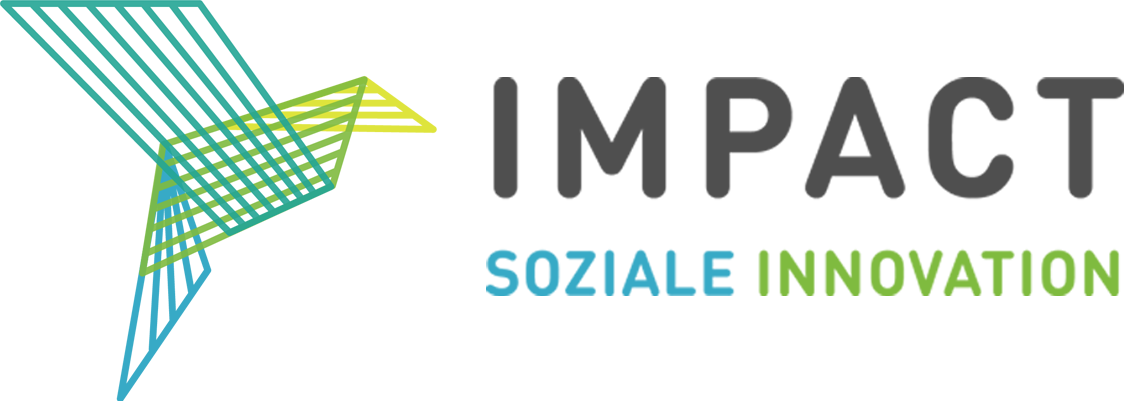Which opportunities do cooperative models and blockchain technology offer to the platform economy? What are other potential pathways toward a more sustainable platform economy?
Today, new digital platforms for sharing, swapping and other ways of collaborative consumption are widely associated with positive economic, ecological and social effects. At the same time, existing platforms like Airbnb and Uber are increasingly criticized in public debate for having negative effects on people, local economies and our planet. As a counter model, new decentral models combining alternative organizational forms (such as platform cooperatives) and new technologies (such as Blockchain technology) are discussed and tested. These and other alternative models promise to better reach social-ecological goals and offer potential to transform the sharing and platform economy.
Results from the projects can be found among our puplications and in the final report from the project:
Analytical framework
- Organizational Forms and the field of the Platform Economy
Platform organizations for sharing, swapping and other ways of collaborative consumption are widely associated with positive economic, ecological and social effects, but existing organizational forms also face much criticism. What alternative organizational forms exist in the platform economy?
Societal expectations regarding the aims of organizations have changed at the latest since the global economic and financial crisis in 2008. Established firms are expected to not only be economically successful, but to also act in a socially and ecologically responsible way. In addition, newly founded organizations aim to achieve social and ecological aims by using management practices and means.
Particularly interesting are thereby new models of sharing, because sharing organizations are active in various industries and organizational fields and because where they oftentimes cooperate or compete with established organizations. They thereby rely on the same set of management practices, but combine them in a way that allows them to achieve social and ecological aims. As a result, new organizational forms evolve.
Despite the existing diversity of these forms it is not yet understood, how these organizational forms evolve and what impact they have. Contributing to closing this research gap is the aim of this research project.
-
Legitimization and Diffusion of the Blockchain Technology
The Blockchain Technology might be an enabler of new business practices and could supersede the central mediator to create a real decentral Sharing Economy. However, the use of the Blockchain technology in real-life sharing organizations is currently rather scarce. Besides the technical complexity, its origin in a highly controversial domain as a means to organize criminal activities or as speculation objects might be a reason for its slow diffusion.
New technologies play a major role in the rise of new economies. The latest example might be the establishment of internet technologies which in turn gave rise to the platform economy. The platform economy currently follows a central logic which can be summed up as “The winner takes it all” leading to market forces favoring few, huge and central platforms – often at the brink of forming a monopoly. As such the current platform economy has some problematic properties and dynamics for society.
Within the sharing economy – a sub-sector of the platform economy – there are some efforts to overcome the logics of centralization and to create a more decentralized platform economy. One kind of these efforts involves the use of a new technology, which is based around the Blockchain. The Blockchain Technology enables the creation of decentralized services, which might be used as a new backbone of business and sharing opportunities. Such decentralized services might make the role of a central platform organization superfluous.
The following research questions are particularly interesting: How is the Blockchain Technology embedded in the current knowledge pool of society? Which organizations and actors drive and influence the diffusion of the Blockchain Technology? What role do these actors play in the process of diffusion? Which organizations adopt the Blockchain Technology? What other technologies or concepts do these organizations combine with the Blockchain Technology?
-
Ecological Impact
The promoted goal of the sharing economy is to intensify the use of products, to extend their life cycle and thus to provide evological advantages. To analyze whether this is acutally achieved, an impact assessment model for different organizational and business models of the sharing economy is developed and applied, thereby taking into account rebound effects.
Technological as well as social innovations have the potential to offer solutions for a sustainable social transformation. Especially at the interface between the different disciplines, a field of new ideas opens up, which is why an interdisciplinary is suitable in this context. The sharing economy is thereby an exciting phenomenon, which has the potential to fundamentally change our society.
The promoted goal of the sharing economy is to intensify the use of products and to extend their life cycle. The sharing economy promises both an economic saving effect for consumers and positive effects on the environment. However, if saved income is spent elsewhere increasing consumption, the ecologically positive effect of sharing might be offset. This phenomenon is also known as “rebound effects” and impairs the sustainability promise of the sharing economy. Within platforms2share, I am developing an impact assessment model for different organizational and business models of the sharing economy by taking into account rebound effects
-
Social & Economic Impact
By lowering transaction costs dramatically, digital platforms can enhance social and economic participation. Existing work and debates suggest that social and economic effects are different for different organizational forms. This idea is to be tested empirically.
Digital platforms for sharing, swapping and other ways of collaborative consumption are widely associated with economic and social gains. However, existing platforms that centrally own and provide the necessary infrastructure (data, software and service solutions) are perceived increasingly critical in public debate. Due to their central position, these platforms could skim off rents from transactions, with the result that the anticipated positive economic distribution effects would only occur to a limited extent.
As an antithesis, different decentral models combining alternative organizational forms and new technologies are discussed and tested. These alternative models follow a more decentralized approach which is pursued at different levels. At the technological level, decentralized concepts for data storage and transaction are developed (e.g. blockchain); at the organizational level, cooperatives are founded; at the individual level, founders as well as providers and consumers of products and services are more strongly motivated by social and ecological goals.
Up until now, there is no systematical research on whether these negative and positive effects of centralized and decentralized platform models actually exist. The aim is to analyze social and economic effects of different organizational forms in the platform economy.
Zuerst werden bestehende SEOs und ihre Geschäftsmodelle erfasst und systematisiert. Im zweiten Schritt werden unter Einbeziehung von SEOs Indikatoren für die Wirksamkeit einzelner Geschäftsmodelle entwickelt. Im dritten Schritt werden diese Indikatoren in einer großzahligen Erhebung erfasst und statistisch ausgewertet, so dass die Beiträge einzelner Modelle und der gesamtgesellschaftliche Beitrag abgeschätzt werden können. Daraus werden im vierten Schritt Handlungsempfehlungen zur betriebswirtschaftlich-technischen Steuerung von SEOs sowie zur Schaffung von regulativen Rahmenbedingungen zur Steigerung der Wirksamkeit erarbeitet. Durch die enge Beteiligung von SEOs in allen Phasen wird ein schneller Wissenstransfer erreicht, so dass die Verbreitung nachhaltiger Modelle unterstützt wird.


